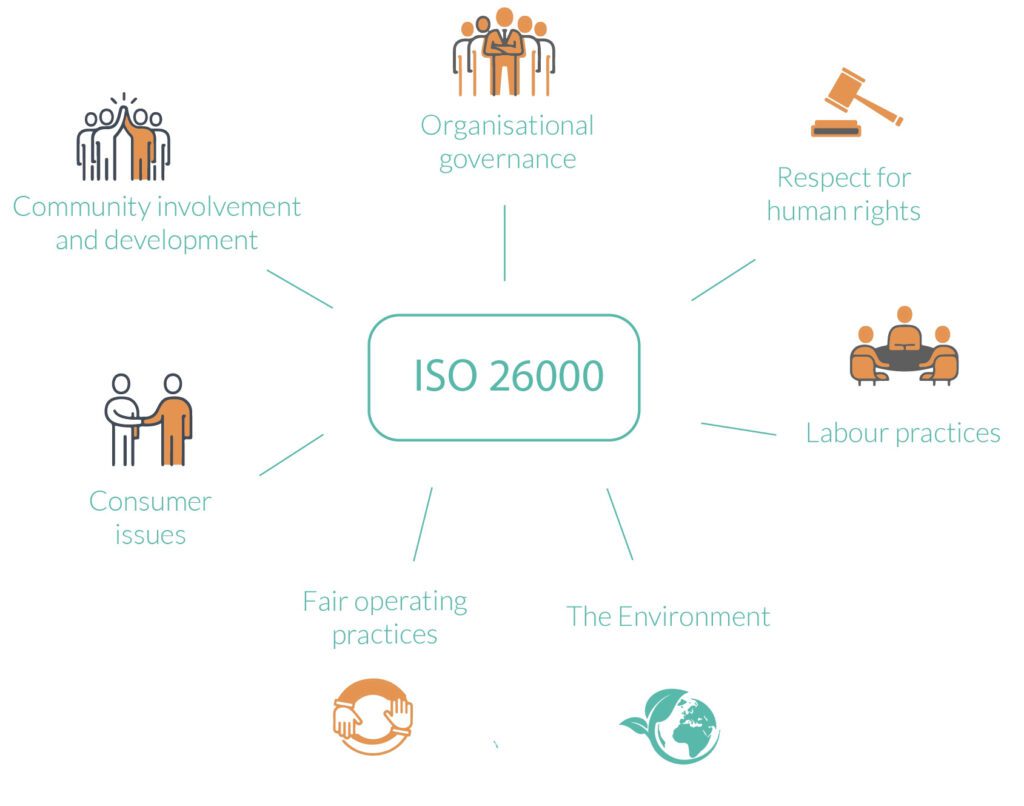
Why are you concerned by the CSR?
(Corporate Social Responsibility)
In the energy and environment sectors, according to INSEE, 82% of the players carry out at least one CSR action in the context of the collaboration they have with their suppliers and 74% at least have one related to energy efficiency and the reduction of the greenhouse effect.
In France, a large majority of companies with more than 50 employees are committed to reducing CO2 emissions and other gases emitted into the atmosphere.
The consequences of their activities (energy production, water decontamination, etc.) confront them daily with the environmental challenges we face. They also act on the social pillars, based on their stakeholders (scope 3*): four out of five companies integrate sustainable development criteria in the choice of their suppliers and partners. Either they ask them to respect a set of specifications with certain CSR clauses, or they include specific criteria in their calls for tenders and contracts.
(*) Scope 3: The broadest scope for calculating indirect greenhouse gas emissions.

Your role in addressing these CSR issues
By committing to a CSR approach, you can increase your company’s overall performance on the economic, social and environmental pillars over time. In addition, this commitment meets the expectations of your stakeholders (your customers, suppliers and employees).
These actions can lead to :
- Increased customer and client loyalty, improving your brand image;
- Increased attractiveness of your company: the growing interest of employees to work in a responsible company;
- Improved employee loyalty and productivity: the implementation of innovative HR policies with a focus on employee satisfaction;
- Mitigation of risks: the implementation of a CSR approach in the company promotes the economic and environmental sustainability of the business model;
- More comfortable financing: the market for “ethical” investments is growing, and investors are increasingly taking social and environmental performance into account;
- Reduced production costs through greater resource efficiency and reduced waste;
- Increased revenues, through the creation of innovative business models, the establishment of more sustainable collaborations, the development of new services more adapted to demand, reliability and quality of supply.
What exactly is CSR?

Corporate Social Responsibility (CSR) is an approach that each company can initiate and implement, in compliance with the 7 pillars of the ISO 26000 standard (or the three dimensions). The entity that commits to it is part of a pioneering community convinced that their individual initiatives have a positive impact on the collective. Through their CSR approach, companies whose activities have an impact on our ecosystem are challenging their business model in order to be compatible with the fight against climate change and the sustainable management of planetary resources.
Whether you are a craftsman, an SME, an ETI or a large company, implementing a genuine CSR approach and respecting it will have a beneficial effect on your business.
How can Actradis assist you?
Actradis is a platform that centralises the data of your subcontractors, suppliers, partners and stakeholders. Within our network, you have the possibility of refining your choice of collaboration among companies that have initiated a CSR approach. By animating this community of committed companies, we can together move towards a collective eco-responsible transition towards a balanced environnement.
« A substantial growth is one that cares about its present. »
Hugo Krauze, CEO







